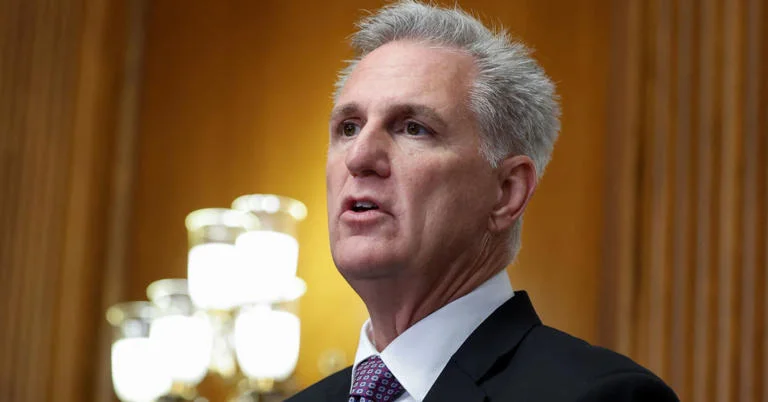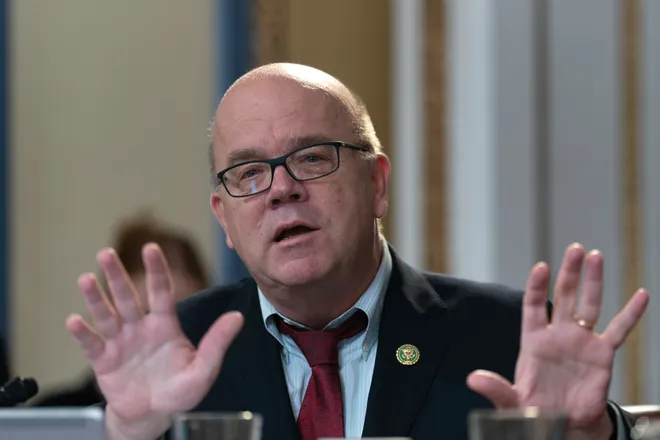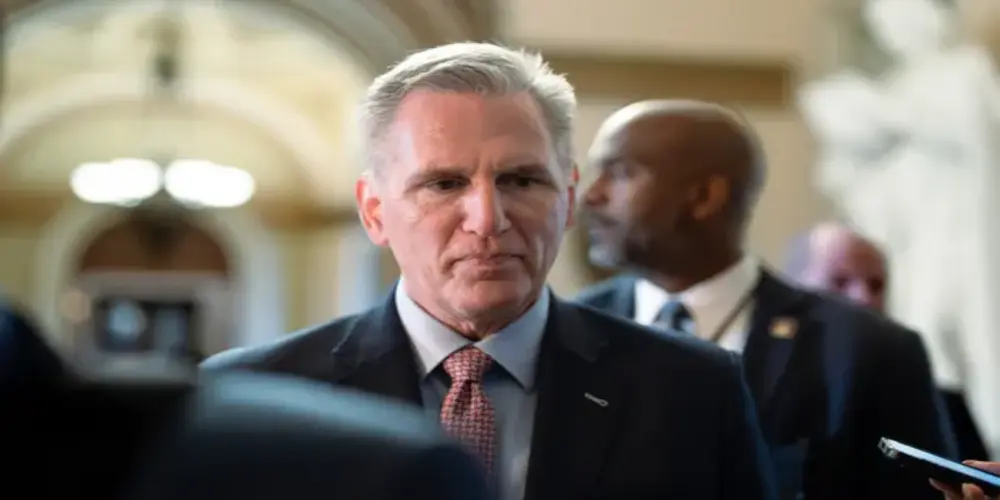In a dramatic turn of events, Congress has managed to avert a looming government shutdown, providing a temporary lifeline for millions of Americans. The weeks of partisan wrangling and uncertainty have ended with a bipartisan agreement. This remarkable development unfolded when House Speaker Kevin McCarthy, a Republican from California, announced the introduction of a short-term stopgap measure known as a continuing resolution, placing it on the House floor for a decisive vote.
To the relief of many, this bill passed in the House with an impressive bipartisan agreement vote of 335-91 and received similar bipartisan agreement support in the Senate with an 88-9 vote. President Joe Biden swiftly signed the legislation into law shortly before midnight.
The situation leading up to this bipartisan agreement was tense, as House Republicans were embroiled in internal disputes. Some GOP lawmakers appeared resigned to the inevitability of a government shutdown. A faction of conservative hardliners insisted on a funding deal that included substantial spending cuts and other ultra-conservative demands. This stance frustrated the broader House GOP conference, which sought to pass a funding bipartisan agreement along party lines.
McCarthy initially hesitated to propose legislation that needed more spending reductions. However, as the specter of a government shutdown drew closer, he seemed to relent. Ultimately, he championed a spending measure that maintained government funding at current levels. While this move rankled McCarthy’s right-wing allies, the bill garnered support from all House Democrats except Rep. Mike Quigley of Illinois.
This stopgap measure effectively grants lawmakers 45 days to craft a comprehensive spending deal that will fund the government for the following year. Speaking at a press conference following the bill’s passage in the House, McCarthy cautioned that the spending battle was far from over.

Speaker McCarthy shrugs off possible speakership challenges, airs frustration with Senate - House Speaker Kevin McCarthy voiced concern on the Senate's actions on spending bills, as well as commented on challenges to his position as speaker.
“At the end of the day, we kept the government open, kept paying our troops to finish the job we have to get done,” McCarthy emphasized.
Predictably, the hard-right Republicans who had called for significant spending cuts voted against the measure. As they exited the House floor, these conservative hardliners voiced their frustration with McCarthy for maintaining current levels of government funding.
Rep. Eli Crane, a Republican from Arizona, lamented, “It’s standard operating procedure here in Washington—continuing to spend money we don’t have. They don’t want to do the appropriation bills. It’s pathetic, but it’s what I expected.”
House Democrats, who had urged McCarthy to support a temporary measure preserving current funding, celebrated the bill’s passage as a victory for their party.
MAGA Republicans have surrendered.
— Hakeem Jeffries (@RepJeffries) September 30, 2023
All extreme right-wing policies have been removed from the House spending bill.
The American people have won.
“MAGA Republicans have surrendered. All extreme right-wing policies have been removed from the House spending bill. The American people have won,” declared House Minority Leader Hakeem Jeffries, a Democrat from New York, in a post on X (formerly Twitter).
We have stopped the Extreme MAGA Republicans from shutting down the government and hurting the American people. pic.twitter.com/BSj8PrWTJu
— Hakeem Jeffries (@RepJeffries) October 1, 2023
Rep. Jim McGovern, a Democrat from Massachusetts, echoed this sentiment, asserting that Democrats had emerged victorious in the spending battle.

Ranking Member Jim McGovern, D-Mass., objects to a GOP proposal as the House Rules Committee meets to prepare an appropriations bill for a floor vote, at the Capitol in Washington, Friday, Sept. 29, 2023.
However, the continuing resolution encountered a minor hiccup in the Senate when Sen. Michael Bennet, a Democrat from Colorado, raised concerns about the absence of additional U.S. aid for Ukraine. Senate leaders eventually issued a statement pledging the upper chamber’s support for Ukraine aid, resolving the conflict with Bennet.
With the stopgap’s successful passage, Senate Majority Leader Chuck Schumer, a Democrat from New York, delivered reassuring words: “The American people can breathe a sigh of relief—there will be no government shutdown.”
The consequences of a government shutdown would have been dire, leaving thousands of families without access to child care, placing furloughed federal workers, already living paycheck to paycheck, in a precarious financial situation, closing most national parks, and causing delays in student loan processing.
Senator Mitch McConnell, a Republican from Kentucky, had earlier warned of the potential political fallout from a government shutdown.
“I think all of you know I’m not a fan of government shutdowns; I’ve seen a few over the years. They never have produced a policy change, and they’ve always been a loser for Republicans, politically,” McConnell cautioned.
The most recent government shutdown occurred from December 22, 2018, to January 25, 2019, lasting 35 days and becoming the most prolonged government shutdown in U.S. history. Notably, it was the third federal shutdown during former President Donald Trump’s administration, with the first lasting three days in January 2018 and the second only a few hours in February 2018.
In conclusion, the unexpected bipartisan agreement has spared the nation from the chaos and uncertainty of a government shutdown. This temporary funding measure provides crucial time for lawmakers to negotiate a comprehensive year-long spending deal, ensuring the continuity of vital government services.
Contact us if you have any queries or concerns.




